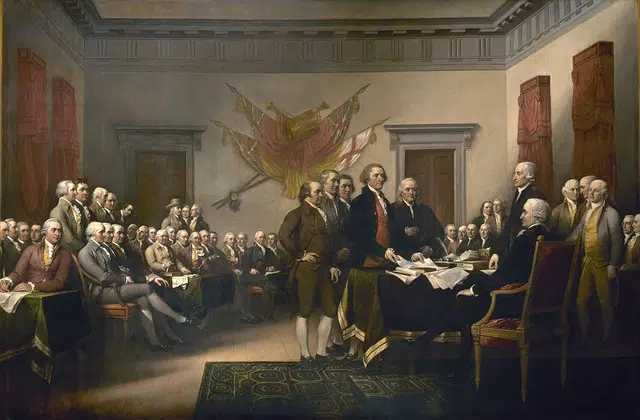
The declaration of independence of the United States took place in 1776.
Independence is the quality or condition of being independent (that is autonomous and that is not dependent on another). The concept is usually associated with freedom . For example: "I am never going to get married because I want to maintain my independence and not be accountable to anyone" , "To achieve independence from my parents, I need to find a job that allows me to cover my expenses" , "Because of a painful illness, the artist has lost his independence and must have the permanent assistance of a nurse .
The notion of independence allows us to name the State that is not dependent on or tributary to another. It emerged as a political concept after the Declaration of Independence of the United States that was presented in 1776 . From then on, many other countries began to respond to European colonialism with their own declarations of independence, which were often the fruit of complex processes.
Before achieving independence, the colonies had to fight wars or carry out revolutions. Only then, by force , did the colonizers end up giving up the power of their domains.
The Spanish War of Independence
Spain is another of the many countries that at certain times in its history has been plagued by different conflicts regarding independence. Thus, for example, in the period between 1808 and 1814 the well-known Spanish War of Independence took place, in which the natives of the nation fought with all their forces with the clear objective of not falling into the hands of what would be the First French Empire, which had Napoleon Bonaparte as its highest leader.
Among the most important events that make up this aforementioned war, we should highlight the May 2 Uprising, which was one of the events that would be established as its origin. That basically consisted of a popular uprising as a result of the confusion and political instability that would be contained by French troops.

Argentina declared its independence in 1816.
The case of Israel
No less important on a historical level is what is known as the Declaration of Independence of Israel, which occurred in 1948, the date on which the British legally stopped ruling over the country. It was the result of various conflicts such as those between Jews and Arabs, who longed for the same thing: Palestine.
The plan that wanted to put an end to this problem established a division of the lands into two, one for the Arabs and the other for the Jews. However, the former did not accept it at all and this would lead to the creation of this declaration and a subsequent Arab-Israeli war, which would end with Israel's victory.
Different types of independence and the difference with autonomy
Political independence has extended to most countries in the world, leaving few territories in conflict. However, economic independence and cultural independence are symbolic, since the most powerful States impose their conditions on the rest. This reason makes many progressive political movements promote a new independence, beyond political sovereignty .
It should be noted that independence is not the same as autonomy . This second concept is linked to the decentralization of power that grants certain powers and competencies to a community that, ultimately, remains dependent on a central government.
